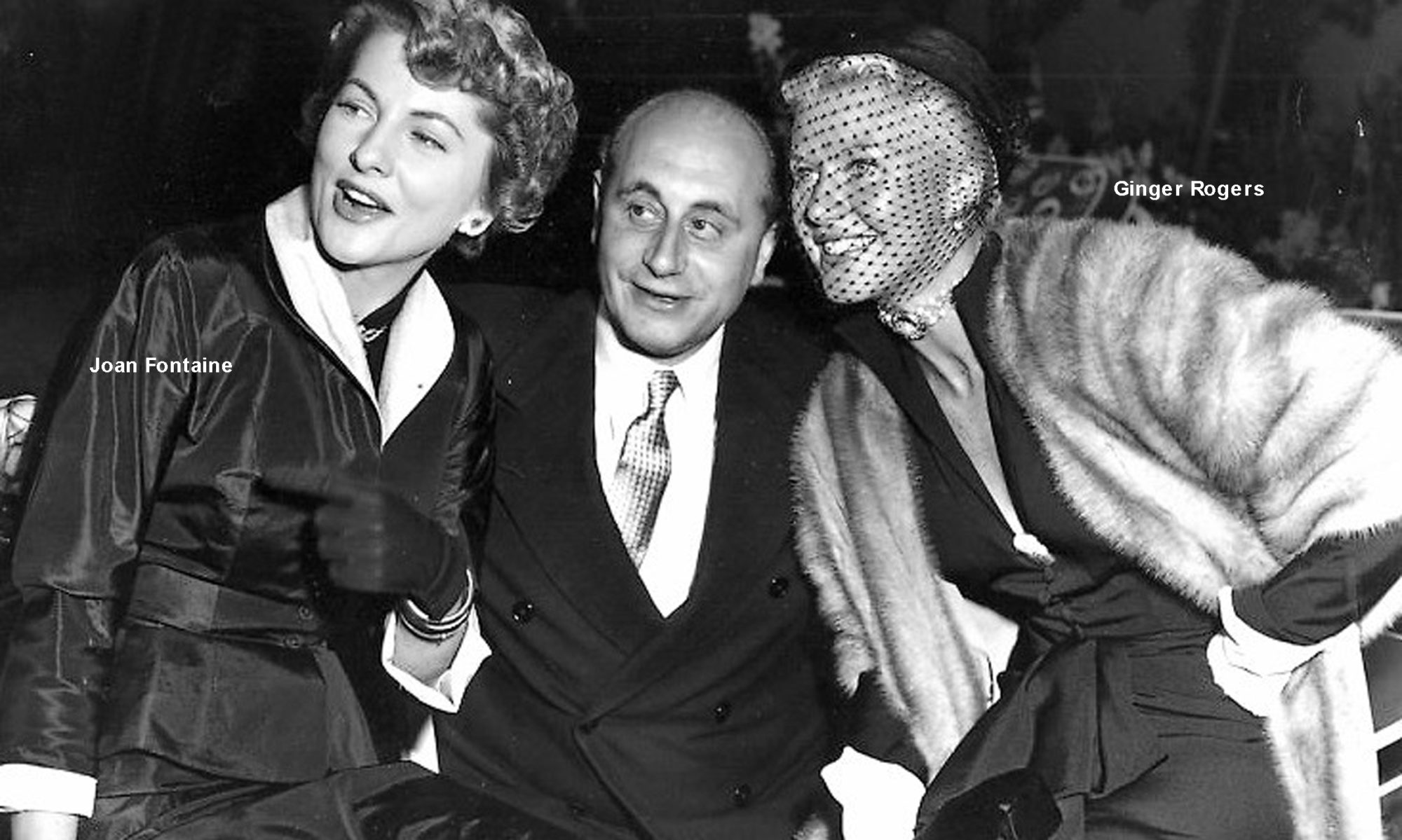
Ireland treated its turn-of-the century influx of Jewish immigrants well, and, in return, earned their loyalty. “Louis Elliman respects his family’s adoptive country and its institutions,” noted the Royal Irish Academy.
Louis respected not only his country and its institutions, he was well aware of its sensitivities. In May 1950, for example, he would allow Frank Sinatra to appear at the Royal only if he came to Ireland without his lover, screen goddess Ava Gardner. Sinatra refused, and it was almost 40 years before he made it onto the Dublin stage.

When Louis took a misstep in 1959, he was quick to correct it. The Gaiety had brought JP Donleavy’s The Ginger Man from London’s West End, with Richard Harris in the title role — and a sex scene with a mattress. Assured that there was nothing in the play that couldn’t be “ironed out [to make it] inoffensive to Dublin audiences,” Louis tried to do so, only to be stopped by the play’s English management.
Dublin’s Archbishop John Charles McQuaid was quick to complain about “the mattress scene in which the actors were not asleep.” Louis assured the Archbishop that he never intended produce a show with “highly unethical objectives,” and pulled the play after three nights — the only Gaiety play ever shut down. “What troubles me most in all this,” he said, “is that the high esteem I feel I enjoy with the archbishop may suffer.” Archbishop McQuaid let Louis know that he appreciated his deference and trusted his integrity.


Impressed by the Variety Club of Great Britain, which raised money for underprivileged children, Louis decided to bring it to Ireland. On August 7, 1951, the Variety Club of Ireland (Tent 41) was constituted by charter by Variety Clubs International, in affiliation with all Variety’s existing Tents. Louis was first Chief Barker (president), a position to which he was reappointed three times. In May 1962, by then Irish Chief Barker for the fourth time, he brought the World Variety Club Convention to Dublin, under the chairmanship of the famous Irish comedian and actor, Jack Cruise. Some 900 people from the US attended, 150 from the UK and scores more from Canada, Mexico and Latin America. They included Variety’s Chief Barker Edward Emmanuel, International Chief Barker Elect Rotus Harvey, Billy Butlin and Jimmy Carreras.
In 1953, Louis became first chairman of the newly created Council of the Cinema and Theatre Benevolent Society of Ireland. In 1954, the Cork Film Festival was launched — which runs annually to this day. Louis was involved in its early planning, advising and encouraging its director, Dermot Breen. He was a regular at the festival during the remaining 11 years of his life, and on its 10th anniversary, his name was included in a select list of international patrons.
Ardmore Studios, too, was about Ireland as much as about film for Louis. Ireland had insufficient funding to produce indigenous films. Louis and his partners planned to use the profits earned from serving foreign film companies to make Irish movies with world appeal, and thus help halt Hollywood’s defining of Irish cinema culture.




